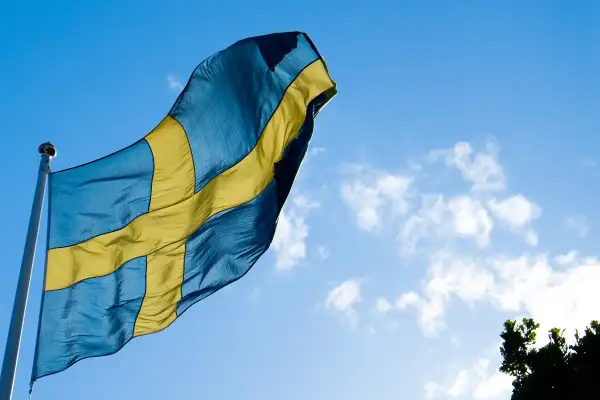Read This and You'll Want to Be a Stay-at-Home Dad in Sweden

Two large factors have influenced public perception of Sweden in the recent past. On the one hand, those Dragon Tattoo novels and movies have painted the country as a dimly-lit northern backwater where sadism is the national pastime.
The other, painted by Vermont Senator and presidential candidate Bernie Sanders, is one of a utopia where the government ensures that everyone has everything they need.
It's not a secret which one is more accurate, but most people don't realize how good it really is.
This week The Billfold published an interview with "Joe," a vlogging American stay-at-home dad in Sweden, and the conversation about having and raising a baby in the country was populated with words like "nirvana" and "frictionless."
"All of the regular concerns that my friends have in the U.S. are simply negated here," he told The Billfold. "Parents have roughly 18 months of leave to split between them, but two months are reserved for the father."
The leave pays up to 80% of your salary, up to around $360 a month, and the unemployed still get help, although it's lower.
After that paid leave, new parents like Joe and his Swedish wife Astri aren't cut loose into the deep end. There are subsidized daycare facilities (called dagis) that are either public or private. It costs about the same for both, and they are priced on a sliding scale like salary-banded healthcare, so the wealthier families pay more and poorer families pay less.
Read next: These Photos Show What Makes Sweden a Great Place to Be a Dad
According to Joe, some people use nannies or au-pairs, but it's expensive since there's very little low-wage labor in Sweden. He describes the dagis as "frictionless," and is amazed by how easy it is to have a baby in the country: "I actually think having a dog in Stockholm is more restrictive than having a baby."
In addition to all the financial assistance, Joe describes Sweden as having a more relaxed attitude with parenting in general. People leave strollers outside—sometimes with babies in them—while they snake a coffee, and pediatricians don't request excessive medial checkups. The attitude is that the process is "totally natural, we are not putting a man on the moon," Joe said.
The process was also incredibly inexpensive: the three-day hospital stay for Joe and Astri and delivery cost a mere $150, including food and very nice accommodations. That kind of money might only go as far as covering two boxes of gauze pads at a price-gouging American hospital.
So what's the catch? According to Joe, his salary is "MUCH LOWER"—he used all caps—than what it would be across the pond. "That being said, my effective income tax rate is kind of the same as in NYC, which makes me really wonder what’s up in the U.S."
The big question after reading this is, of course, whether such a system is possible in the U.S. Senator Sanders thinks so, though not everyone is convinced that American citizens will be willing to give so much power to the government. "The tax authority is really strong here and knows everything, so I find that it works usually pretty well," Joe says, but adds "when you don’t think about how much the tax authority knows about you."
Calculator: How much should I be saving for college?
This is the heart of the problem that's been discussed lately, most credibly from experts with actual experience in a Scandinavian social democracy. An economics fellow and Dane Jacob Kirkegaard said that his country's homogeneity makes trust in the government possible, as citizens felt like "shareholders in the state," according to a piece in the Washington Post on Monday. In America, where there are so many disparate groups and interests and high distrust of the government, it would be much more complicated and less likely for a broad swath of people to embrace to adopt the Scandinavian way, with higher taxes and more income distribution as the tradeoffs for free college and low-cost health care.
Still, affordable child and healthcare does sound pretty good, and having a baby in Sweden sounds like a stress-free dream compared to the U.S.
